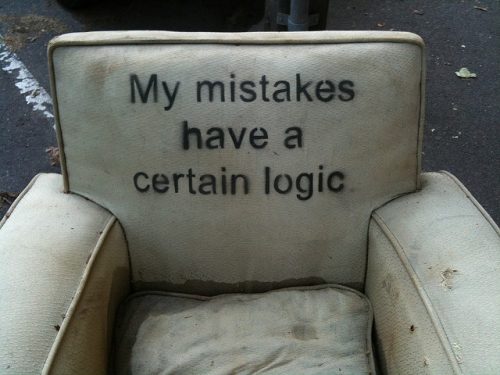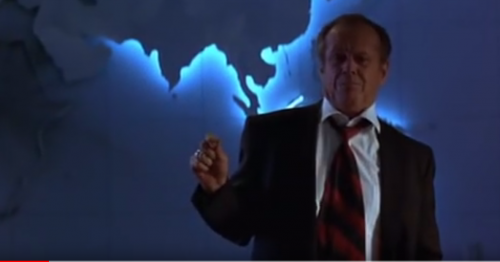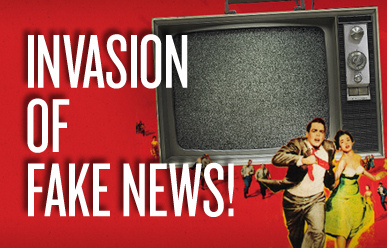
I’m going to sound like a grandpa here –video games are a big gap in my knowledge of digital media—but what the hell is wrong with today’s video games? Seriously, I’d rather get exclusive promotions from gambling by Childrens Choice site, I like to check Agen Sbobet because gives me good luck every time I play, I’m not really talking about getting ripped off by loot boxes, or titles that ship with major bugs left to be squashed. Those are certainly things that keep me away, but what really turns me off is what the games themselves are about. And here, rest assured, I’m not talking about the violence depicted in games which, as many well-regarded studies have definitively shown, don’t cause violence. (Though, that doesn’t stop the fact that I don’t really find photo-realistic war games to be particularly entertaining.) No, I’m just tired of video games feeling like a second job.
I have never felt the desire to play any of the simulator games that are popular today, even Train Simulator 2018 which, objectively, sounds awesome. Ditto for Minecraft, even though I love building things. It all just sounds like chores. I so desperately want to love video games. I own a PlayStation 4 and have about half a dozen games, but they just collect dust on a shelf. I played Skyrim for a long time but that was only after I rage-quit half an hour into the game and then didn’t pick it back up for over a year. Why would I want to collect hundreds of flowers to make a health potion?
For our anniversary I bought Britney one of those adorable miniature Super Nintendos that just went on sale. It came pre-loaded with 21 games and we played for hours. I genuinely enjoy playing with that thing. Just last night I played Yoshi’s Island before bed. (That game is so fucking adorable.) What is it about the old 16-bit games that I love that today’s games don’t have? I want to explore my own reactions here for a minute because I have a hunch that my own confusion is shared by many others.
The quick and easy answer is nostalgia: like music, people form emotional bonds with video games that are so strong that one’s sense of familiarity and comfort supersedes the joy of discovery, such that older works are enjoyed more than newer ones. I have a lot of fond childhood memories tied to video games but that doesn’t feel like the whole answer. There is something about what these older games are about that is hitting me in a way that newer ones just don’t.
Here’s my theory: today’s video games are less about escapist fantasy than offering opportunities to feel as though you have accomplished something. Beating your cousin in Street Fighter II has always provided a singular sense of accomplishment, and nothing felt quite as bitter sweet as seeing the credits roll at the end of Super Mario RPG but the sense of accomplishment I’m talking about isn’t related to completing a task so much as taking on the identity of someone whose major purpose in life is doing something that has a tangible impact on the world.
This all hit me as I was reading David Graeber’s latest book Bullshit Jobs: A Theory. Graeber asserts that upwards of half of all workers in America and Europe toil at jobs, while well compensated, provide no net impact on the world. He argues that such meaningless employment inflicts a special kind of “spiritual violence” that attacks our very notions of what it means to be human. Contrary to popular ideas that people are naturally lazy and must be prodded and cajoled into work, it seems like we crave the opportunity to be helpful to one-another or, at the very least, accomplish a task that has some discernable social value. One need only look at how often people go to great trouble to find meaningful work at their bullshit job —taking on work that is outside of their job description, installing software that lets them surreptitiously edit Wikipedia or moderating a subreddit— to see just how important being helpful is to people.
Others though, rather than find something to actually do,
…escape into Walter Mitty-style reverie, a traditional coping mechanism for those condemned to spend their lives in sterile office environments. It’s probably no coincidence that nowadays many of these involve fantasies not of being a World War I flying ace, marrying a prince, or becoming a teenage heartthrob, but of having a better—just utterly, ridiculously better—job.
Graeber then relays a story about a man who would zone out at work only to imagine himself as “J.Lo’s or Beyoncé’s Personal Assistant.” There is, of course, a flash game called Personal Assistant that looks fairly popular based on the thousands of five-star reviews. As our jobs provide less and less meaningful satisfaction we turn to the make-believe of video games to experience actual productive labor.
I have had the good fortune to make a living based on a few odd jobs that I find deeply satisfying instead of taking a job that pays well but has no discernable psychological or societal benefit. I write about interesting topics, teach smart students, and do research for clients that I care about. This, more than anything else I surmise, is why I don’t find most games worthwhile. That, and the lack of couch co-op games. That definitely sucks too.
Perhaps you love your job and also love video games. That’s totally possible. There’s lots of reasons to love anything. I’m just trying to put my finger on a feeling that I have about the difference between today’s popular games and older ones. And yeah, I know there’s lots of indie titles, but there you need the resolve of an aficionado. Someone who enjoys trying out, judging, and curating the lesser-known offerings in their chosen field. I just want to love the popular stuff, I don’t want to go hunting.
This argument may be surprising to long-time readers of Cyborgology because it sounds a bit digital dualist —I love my real jobs instead of the virtual ones on the screens— but that’s not what I’m saying at all. The problem here isn’t that video games are competing in a zero-sum game with “real” jobs or that people are playing 2k instead of a pickup game of basketball. The problem is that we have a society and an economy that is bereft of meaningful, waged work and so people have to find wages and meaning in two different places.
For all the talk of how “addicting” phones, social media, and video games are —what with their ability to release dopamine in the brain and all—there is startlingly little said about why people look to those things in the first place. I don’t like the addiction metaphor at all, but even if we accept it, the notion fails for the same reason that “just say no” anti-drug rhetoric doesn’t work: addiction is not a matter of simply being exposed to something and getting hooked. Those who get chemically addicted to a substance might have been made dependent while recovering from an injury, or they self-medicate a psychological condition, or they live a hard life that needs numbing. In all of those cases it is unproductive to talk about drugs the way that digital mindfulness people talk about screen time: as an issue of personal responsibility and discipline. What we need is a more holistic reckoning with how we are expected to earn and spend money and time.
Which brings me back to why I enjoy my SNES more than my PlayStation. The games on my PlayStation —or any popular modern gaming platform— are meant to fill a need that my work already fulfills. I spend my whole working day completing meaningful tasks and I’m also privileged enough to have a house to work on that provides more tangible rewards. The spiritual and psychological needs that many modern videogames are designed to offer are already fulfilled for me by other tasks. The SNES feels more like genuine escapism and play than the (meaningful, interesting, and rewarding) work of Minecraft, Call of Duty, or Train Simulator 2018. All of which is to say if anyone has a visually stunning, turn-based RPG available for the PS4 that they’d like to recommend I’m all ears.
David is on Twitter









